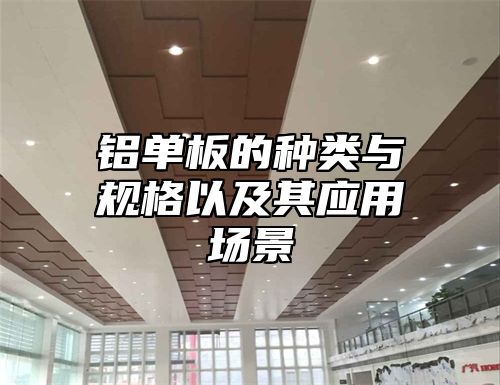

 Industry information
Industry information
Aluminum veneer, as a new type of building material, is highly favored in the construction industry due to its lightweight, high strength, corrosion resistance, sound insulation, and other advantages. Aluminum veneer can be customized according to different types and specifications to meet the needs and requirements of different customers. Below, we will provide a detailed introduction to the types, specifications, and application scenarios of aluminum veneer.
The types of aluminum veneers mainly include single aluminum veneers, hyperbolic aluminum veneers, wavy aluminum veneers, etc. Single aluminum veneer refers to aluminum veneer with a rectangular or square shape, suitable for decoration and protection of building exterior walls, roofs, and other parts; Hyperbolic aluminum veneer refers to aluminum veneer with an arc-shaped or wavy shape, suitable for decoration and protection of building curtain walls, doors and windows, and other parts; Wavy aluminum veneer refers to aluminum veneer with a wavy or curved shape, suitable for decoration and protection of building exterior walls, roofs, and other parts.
The specifications of aluminum veneer include thickness, width, length, etc. Generally speaking, the thickness of aluminum veneer is between 1.5mm-3mm, and the width and length can be customized according to customer requirements. Aluminum veneer can also be customized for production according to different surface treatment methods, such as spraying, rolling, anodizing, etc.
The application scenarios of aluminum veneer are very wide. For example, aluminum veneer can be used for decoration and protection of building exterior walls, roofs, doors and windows, and other parts; Can be used for decoration and renovation of indoor walls, ceilings, floors, and other areas; It can be used in the manufacturing and maintenance of transportation vehicles such as automobiles, airplanes, and ships. Aluminum veneer can also be customized according to different design requirements and decorative effects to meet the needs and requirements of different customers.
Aluminum veneer, as a new type of building material, has the advantages of lightweight, high strength, corrosion resistance, sound insulation, etc. It can be customized according to different types and specifications to meet the needs and requirements of different customers. By optimizing production processes and improving product quality, the market competitiveness and market share of aluminum veneer can be further enhanced. Both investors and production enterprises need to closely monitor the new technologies and trends in the aluminum veneer industry, adjust their business strategies and investment directions in a timely manner, in order to seize market opportunities.